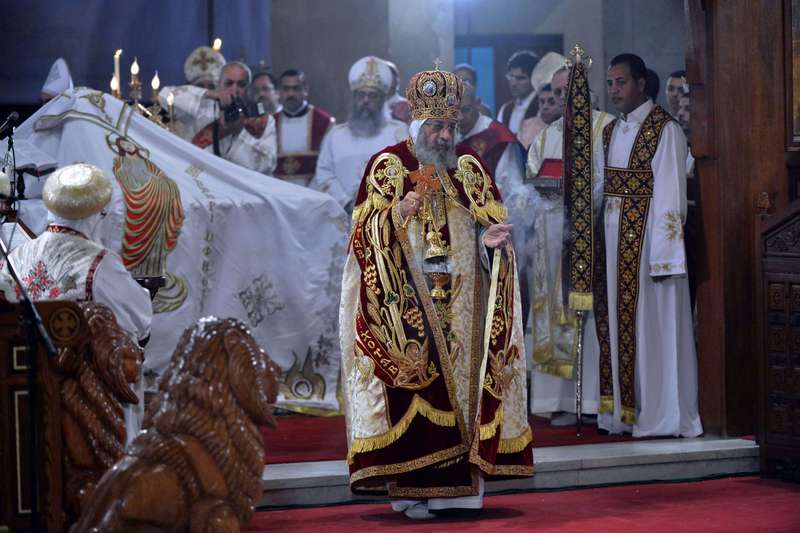The 16th BRICS summit kicked off in the Russian city of Kazan on Tuesday with the participation of leaders from 36 countries, including 22 heads of state or government. The three-day event will see discussions on a range of topics, including the creation of a BRICS digital payment platform and ways to increase trade in national currencies.
Among those in attendance are Egypt’s President Abdel Fattah Al-Sisi, China’s President Xi Jinping, India’s Prime Minister Narendra Modi, South Africa’s President Cyril Ramaphosa, Iran’s President Masoud Pezeshkian, and UAE President Mohamed bin Zayed Al Nahyan. United Nations Secretary-General Antonio Guterres is also expected to attend.
The summit will be divided into two parts. The first part will be held under the slogan “Strengthening Multilateralism for Equitable Global Development and Security,” while the second part will focus on “BRICS and the Global South – Jointly Building a Better World.”
During the event, Russia, which has held the group’s rotating presidency since January 1, 2024, will propose initiatives related to humanitarian, economic, financial, parliamentary, and other fields.
Russian President Vladimir Putin will hold 17 bilateral meetings with foreign counterparts on the sidelines of the summit, beginning ahead of the official opening on October 21. On Tuesday, Putin met with his counterparts China’s Xi Jinping, Egypt’s Abdel Fattah Al-Sisi, India’s Modi, and South Africa’s Cyril Ramaphosa.
Leaders of several other countries that have shown an interest in deepening ties with BRICS are also participating, including Turkish President Recep Tayyip Erdogan and Vietnamese Prime Minister Pham Minh Chinh.
Brazilian President Luiz Inacio Lula da Silva cancelled his trip to Russia after suffering a head injury in a fall at home on October 19. Foreign Affairs Minister Mauro Vieira will now represent the country at the summit.
BRICS’ Influence Grows
The expansion of BRICS has made it a significant force on the global stage. The group now represents about 45% of the world’s population (~3.6 billion people) and a combined nominal GDP of $28.5trn (IMF, 2023). BRICS accounts for 36% of global GDP (PPP), surpassing the G7’s 29.3% and the EU’s 14.5%.
“BRICS’ 2024 growth is forecast at 4%, versus 1.7% for the G7 and 3.2% globally,” Putin said at the BRICS Business Forum.
The BRICS bloc holds $45trn in investable wealth, according to the January 2024 BRICS Wealth Report.
BRICS nations collectively account for 45% of global crude oil production. BRICS countries hold over 20% of global gold reserves, led by Russia (2,340 tons) and China (2,260 tons), according to Sputnik’s calculations using World Gold Council data.
BRICS accounts for 25% of global exports. In 2023, Russia’s trade reached $228bn with China, $57bn with India, and $13bn with Brazil and South Africa.
BRICS’ History and Objectives
Founded in 2006 by Brazil, Russia, India, and China, with South Africa joining in 2011, BRICS is a group of emerging economies seeking to promote cooperation and development. On January 1, 2024, Egypt, Iran, the UAE, Saudi Arabia, and Ethiopia became full members, while Russia assumed the BRICS presidency.
BRICS began engaging with third-party countries in the early 2010s through the “BRICS Plus/Outreach” format. Around 40 countries are interested in cooperating with the group in various ways.
BRICS is a “club of like-minded” members, not a bloc like NATO or the EU, and lacks a charter, budget, secretariat, and supranational structures.
BRICS’ Initiatives
BRICS is working on a range of initiatives to further its goals. The group is developing tools for an inclusive financial system, including a common unit of account (Unit), multilateral settlement platform (BRICS Bridge), blockchain payment system (BRICS Pay), settlement depository (BRICS Clear), insurance system, and independent rating agency.
The group is also working to establish the New Development Bank (NDB) to fund infrastructure and sustainable development projects in member states and emerging markets. The NDB’s authorised capital is $100bn. Since 2016, the NDB has invested in 138 projects across China, India, Brazil, Russia, South Africa, Bangladesh, and Egypt.
Amid Western sanctions, around 65% of settlements between Russia and BRICS partners now use national currencies.



